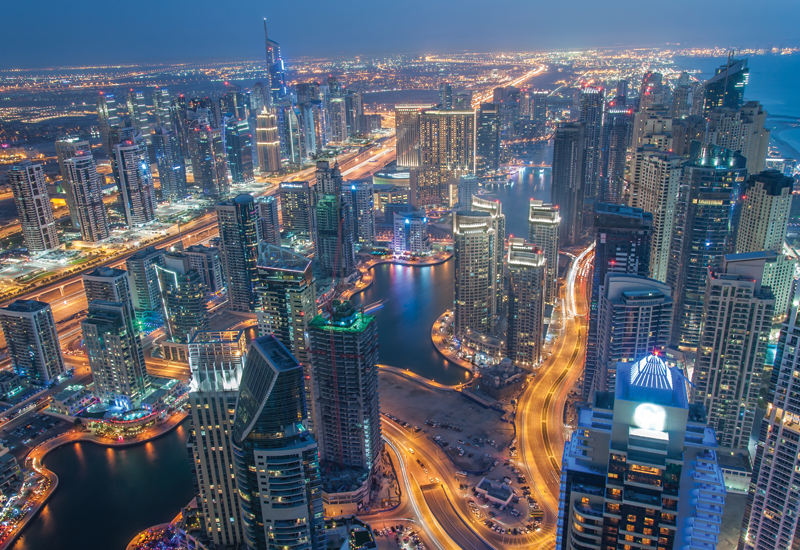Another year, familiar and fresh challenges
It is a story known throughout the world though. Where there is money to be made, there is a subsequent increase in competition. The major challenges the hospitality sector faces in Dubai is the continuous increase in the supply of rooms as hotels compete to obtain fair market share growth, Dhugga iterates.
“Dubai has already set itself the target of 160,000 hotel keys by 2020 and these must be absorbed into what is already an incredibly competitive market place,” she says.
For Hewett, the number one challenge for the market in 2017 will be responding to the expected further decline in average rates whilst maintaining quality service levels and profitability for owners.
“It will require hoteliers to be creative in how they respond to the wider change in the market and adapt their business plans and strategies to preserve market share and limit the decline in revenues and profits,” he asserts.
And it is Sona who explains that as the market consolidates and absorbs the new influx of supply, the “reduced levels of RevPAR will be challenging for hotel operators and owners to manage”.
This presents, he says, an opportunity for asset management services to focus on increasing efficiency and bottom-line for the owners. He says: “In line with this expected trend, our hotel asset management business has grown twofold in the last couple of years.”
Sona says that development activity is expected to continue as Dubai “races towards its aims to achieve 160,000 keys by 2020”. “This coupled with the slowdown in corporate tourism in the region (due to oil prices) and slowdown in certain key source markets such as Russia, will put additional pressure on ADRs,” he continues.
“As a result, Colliers expects a 2% to 3% drop in RevPARs across the market; however, for some leisure districts such as Palm Jumeirah, Colliers expects a 5% increase in ADR and 2% increase in RevPAR in 2017.”
And there is optimism, as Hewett demonstrates when he says: “I anticipate that 2017 will have similar challenges in 2016, however, I believe that hoteliers will be better prepared to respond to these challenges.”
“The slow shift towards a mass tourism market will strengthen, particularly with the entry of quality mid-scale hotels which are expected throughout the year,” he explains. “This will place pressure on rates performance, however with the announcement of new policies which includes the provision for Russian visitors to receive visas on arrival, we are expecting to see tourist growth to continue, maintaining strong occupancy level throughout the market.”
According to Jagersbacher, with the region benefitting from proximity and ease of access to rapidly emerging markets in Asia and Africa, “hospitality companies which demonstrate a clear vision in terms of leadership, an ability to operate innovatively and efficiently under strong, distinct brands — will continue to attract developers, employees and guests in 2017 and beyond”.
Dhugga believes that relaxed visa regulations for travellers from China and Russia will drive demand from these two important markets. “The addition of attractions to Dubai’s already burgeoning tourist offering is expected to drive large numbers to the emirate,” she continues. “However, new supply continues to come onto the market, with 46,979 keys in the pipeline according to STR. This gives tourists greater choice and may force hotels to reduce their ADR or explore ways of adding value to their existing offers.”
The Knight Frank report on the Dubai and Abu Dhabi hotel supply says the short-term outlook for the hospitality market “remains clouded by the continued appreciation of the US$ and prevalent economic uncertainties”. However, the delivery of Dubai’s theme park complex along with the Opera District and other demand generators is expected to drive demand for Dubai’s hospitality market in the next 12 months. The report continues that, looking ahead and amid a strong supply pipeline, “hotel operators need to diversify their products to offer more budget accommodation to cater for diverse travellers”.
And His Excellency Almarri urges that collaboration with industry partners and key government stakeholders is integral for sustained growth.
“By consistently outpacing the global forecast for visitors, we remain extremely confident about the future outlook for Dubai, especially considering the global headwinds we have faced in last year, as we remain in the top four most visited cities in the world,” HE Almarri continues.
“The solid foundations that we have put in place through diversification of markets, a broadening portfolio of attractions and facilities and a collaborative approach between the hotel and hospitality sectors and the retail community, as well as the collective contribution of government, public and private enterprises will allow us to accelerate the pace of growth in 2017 and well into the future.”
Dubai Tourism is confident, are you?

| Advertisement |





